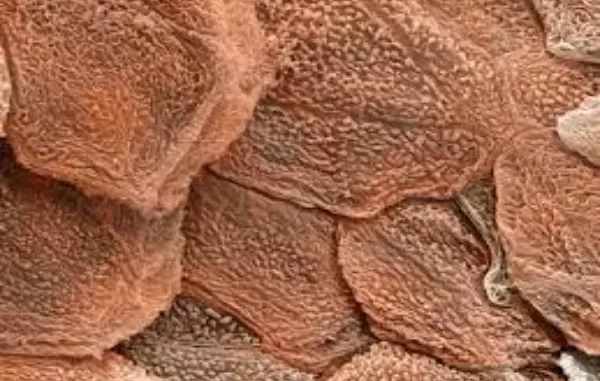
The human skin is an incredibly complex and fascinating organ. It is our largest organ and is responsible for a variety of important functions. From providing protection against the environment to regulating body temperature, the skin is a crucial part of our health. In addition to its important role in keeping us healthy, the skin also has some interesting facts about it that you may not know. Here are some interesting facts about the human skin that you should know. More content like this on our interesting facts about humans teeth post.
Discover the Diverse Functions of Human Skin

Human skin is one of the most important organs of the body, playing a vital role in protecting our bodies from disease and injury. This complex organ is made up of three distinct layers: the epidermis, dermis, and subcutaneous tissue. Each layer has different functions that contribute to the overall health of the body.
The epidermis is the outer layer of skin, and its main function is to act as a barrier against external elements. This layer is composed of four distinct layers: the stratum corneum, stratum granulosum, stratum spinosum, and stratum germinativum. The stratum corneum serves as a waterproof barrier, preventing water loss and protecting against pathogens. The stratum granulosum produces lipids, which protect against microbes. The stratum spinosum and stratum germinativum contain cells that are constantly being replenished and replaced.
The dermis lies beneath the epidermis and serves a number of important functions. It contains nerves, blood vessels, and sweat glands that provide sensation and regulate temperature. It is also home to hair follicles and sebaceous glands, which produce sebum, a waxy substance that helps keep the skin hydrated.
The subcutaneous tissue lies beneath the dermis and provides insulation and protection from trauma. It also contains fat cells, which store energy and produce hormones.
In addition to its structural and protective functions, human skin also plays a role in regulating body temperature. Sweat glands located in the dermis produce a fluid called sweat, which helps to cool the body down when it is exposed to heat.
Finally, the skin acts as a sensory organ, providing us with information about our environment. Our skin contains thousands of nerve endings that sense touch, pressure, pain, and temperature. This information is sent to the brain, allowing us to respond to our environment.
Human skin is an incredibly complex organ with a variety of functions that keep us healthy and safe. It serves as a barrier against external elements, regulates our body temperature, and provides us with information about the world around us. It is truly one of the most diverse and important organs of the body.
Uncover the Amazing Adaptability of Human Skin
Humans are remarkable organisms that can adjust and adapt to almost any environment and circumstance. This is perhaps most evident in the incredible adaptability of human skin. From providing vital protection from the elements, to regulating body temperature, to allowing us to sense our environment, our skin plays a crucial role in enabling us to live our lives.
The outer layer of our skin, the epidermis, is made up of cells that are constantly regenerating. This layer is vitally important, as it helps to protect us from germs, sun damage, and other environmental hazards. It also helps to regulate fluid balance and body temperature by controlling how much water our skin can absorb or release.
The middle layer of our skin, the dermis, contains connective tissue, sweat glands, and hair follicles. This layer is responsible for providing us with strength and flexibility, as well as allowing us to sense our environment through the nerve endings it contains.
Finally, the inner layer of skin, the hypodermis, is made up of fat and other tissue. This layer helps to insulate us and to cushion and protect our internal organs.
These three layers of skin work together to provide us with an amazing amount of adaptability. In the face of extreme temperatures, skin cells can adjust to protect us from both the heat and the cold. In the presence of stress, our skin can become thick and tough. And when exposed to toxins and other environmental hazards, our skin can produce special proteins that help to protect us.
Clearly, human skin is an amazing organ that allows us to survive and thrive in a wide variety of environments. Our skin’s ability to adapt to its surroundings is a testament to the incredible power of evolution, and it is a reminder of just how remarkable the human body really is.
Exploring the Surprising Benefits of Skin Care Practices
Good skin care practices have long been viewed as an exercise in vanity, but there is actually a surprising amount of scientific evidence that indicates that skin care is about more than just looking good. Studies have found that regular skin care practices can have a profound and positive impact on overall health and wellbeing.
First, it is important to note that skin is the body’s largest organ, and it’s incredibly important for maintaining a healthy internal environment. Proper skin care helps to protect the skin from dirt, bacteria, and other environmental hazards, while keeping the body’s pH balanced. This can help to prevent the development of infection and disease.
In addition, skin care practices can help to reduce the signs of aging. Regular skin care can help to keep the skin looking firm and youthful, which can have a positive effect on self-esteem and overall mental wellbeing.
Finally, skin care practices can be beneficial for individuals with certain skin conditions, such as acne, eczema, and psoriasis. Proper skin care can help to reduce inflammation and irritation, as well as improve the overall appearance of the skin.
It is clear that skin care practices are about more than just vanity. By taking the time to properly care for your skin, you can protect your overall health and wellbeing.
Leave a Reply